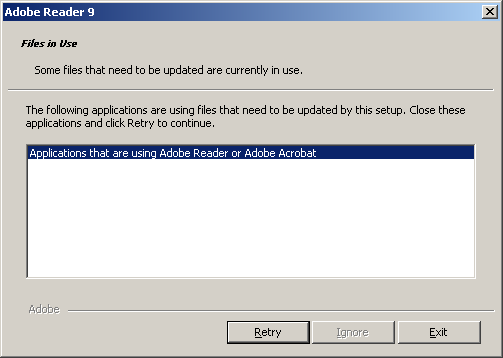21:31:27 T:2440 NOTICE: [plugin.video.pulsar] 2015-02-03 21:31:27 INFO btservice Starting DHT...
21:31:27 T:2440 NOTICE: [plugin.video.pulsar] 2015-02-03 21:31:27 INFO btservice Starting LSD...
21:31:27 T:2440 NOTICE: [plugin.video.pulsar] 2015-02-03 21:31:27 INFO btservice Starting UPNP...
21:31:27 T:2440 NOTICE: [plugin.video.pulsar] 2015-02-03 21:31:27 INFO btservice Starting NATPMP...
21:31:27 T:4984 NOTICE: Thread LanguageInvoker start, auto delete: false
21:31:27 T:4984 NOTICE: -->Python Interpreter Initialized<--
21:31:28 T:4984 ERROR: EXCEPTION Thrown (PythonToCppException) : -->Python callback/script returned the following error<--
- NOTE: IGNORING THIS CAN LEAD TO MEMORY LEAKS!
Error Type: <class 'urllib2.URLError'>
Error Contents: <urlopen error [Errno 10061] No connection could be made because the target machine actively refused it>
Traceback (most recent call last):
File "C:\Users\TVComputer\AppData\Roaming\Kodi\addons\plugin.video.pulsar\navigation.py", line 6, in <module>
navigation.run()
File "C:\Users\TVComputer\AppData\Roaming\Kodi\addons\plugin.video.pulsar\resources\site-packages\pulsar\navigation.py", line 72, in run
data = _json(url)
File "C:\Users\TVComputer\AppData\Roaming\Kodi\addons\plugin.video.pulsar\resources\site-packages\pulsar\navigation.py", line 40, in _json
with closing(urllib2.urlopen(url)) as response:
File "C:\Program Files (x86)\Kodi\system\python\Lib\urllib2.py", line 127, in urlopen
return _opener.open(url, data, timeout)
File "C:\Program Files (x86)\Kodi\system\python\Lib\urllib2.py", line 404, in open
response = self._open(req, data)
File "C:\Program Files (x86)\Kodi\system\python\Lib\urllib2.py", line 422, in _open
'_open', req)
File "C:\Program Files (x86)\Kodi\system\python\Lib\urllib2.py", line 382, in _call_chain
result = func(*args)
File "C:\Program Files (x86)\Kodi\system\python\Lib\urllib2.py", line 1214, in http_open
return self.do_open(httplib.HTTPConnection, req)
File "C:\Program Files (x86)\Kodi\system\python\Lib\urllib2.py", line 1184, in do_open
raise URLError(err)
URLError: <urlopen error [Errno 10061] No connection could be made because the target machine actively refused it>
-->End of Python script error report<--
21:31:29 T:4548 ERROR: XFILE::CDirectory::GetDirectory - Error getting plugin://plugin.video.pulsar/
21:31:29 T:4548 ERROR: CGUIMediaWindow::GetDirectory(plugin://plugin.video.pulsar/) failed
21:31:29 T:764 NOTICE: Thread BackgroundLoader start, auto delete: false
